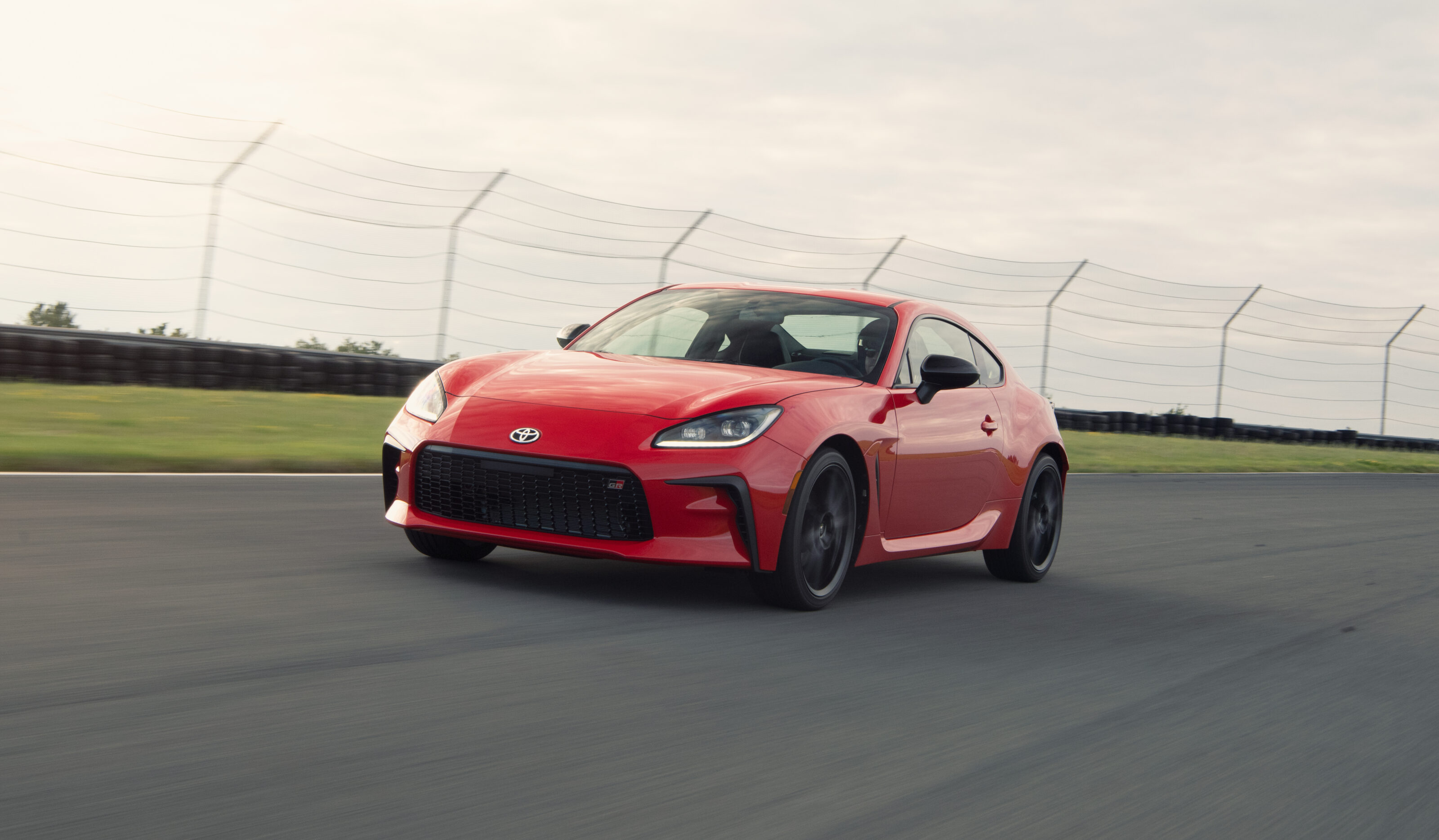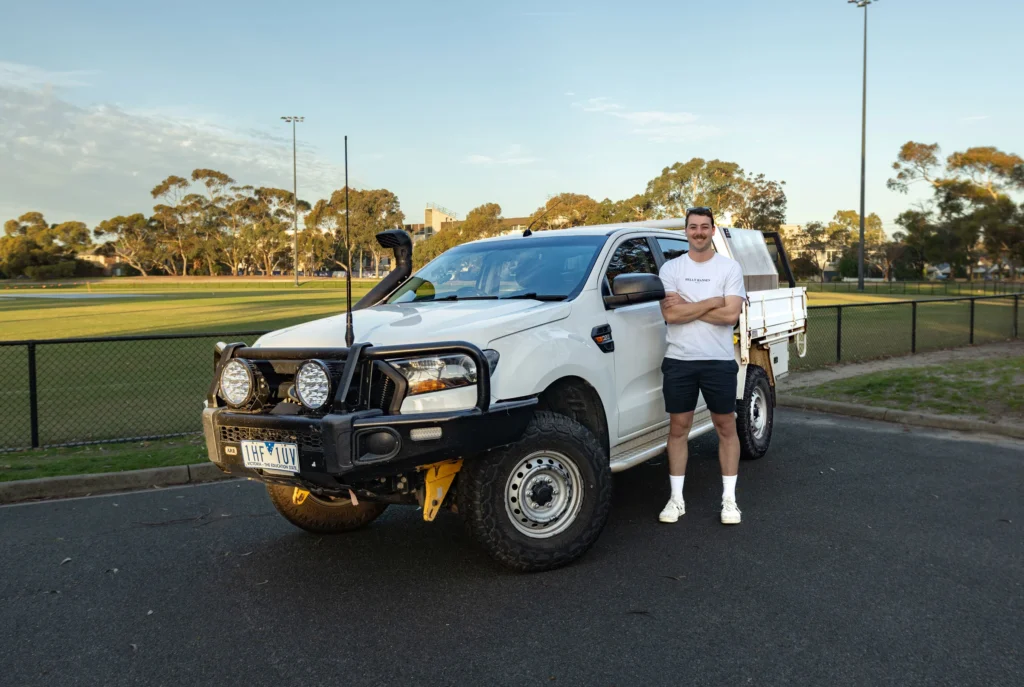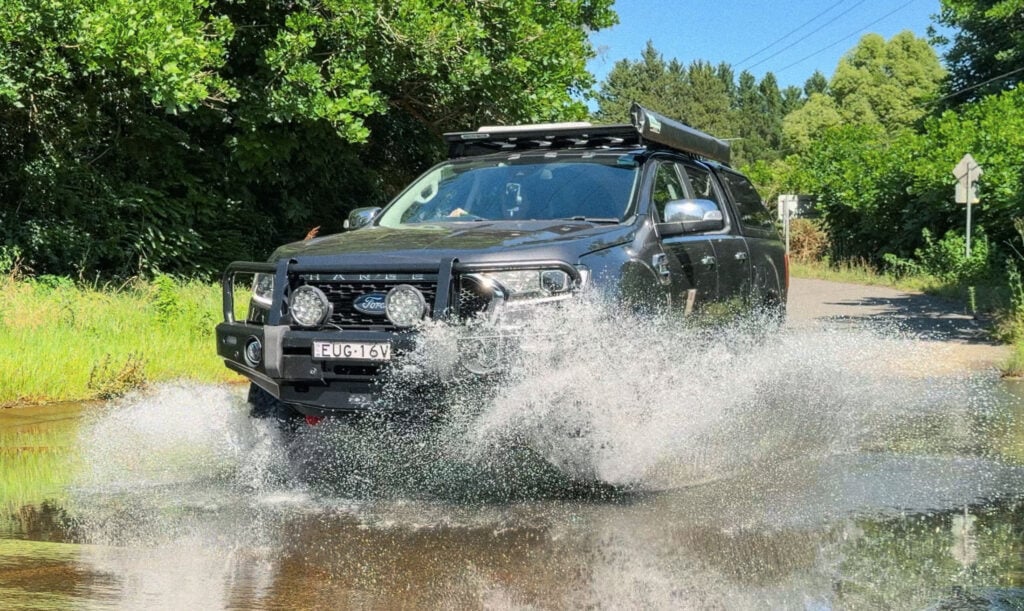Things we like
- More grunt
- Better soundtrack
- More refined interior
- Same uncompromising philosophy
Not so much
- Auto still the poor relation
- Some will still complain it’s not quick enough
After a decade’s worth of getting acquainted with the Toyota 86, the Aichi, Japan automaker has officially debuted its ground-up replacement: the 2022 GR86. Well actually, it’s not really a ground-up replacement, but rather a pretty substantial checklist.
The previous ZN6/ZC6 generation had some rough edges, and wasn’t the quickest thing on the road, but all things considered it was a fun, engaging, and inexpensive little sports car that was tailor-engineered for anyone who wanted to have any amount of fun behind the wheel. Nobody ever loved that FA20 engine though.
This brand new 2022 model takes the old 86’s basic formula and rounds off these edges. Toyota (and its platform-sharing pal Subaru) have taken criticisms from both journalists and enthusiasts into consideration, and have visited up on the 86 some substantial updates. There’s more power, more overall refinement, some increased dimensions, and the styling and design has been refreshed to keep it relevant for years to come. But is this enough?
UPDATE, September 23, 2022: New GR86 on sale in Oz, and DRIVEN!
The new 2023 Toyota GR86 has finally launched in Australia, and we’ve now driven the version buyers will get. See our full review at the link below.
Story continues
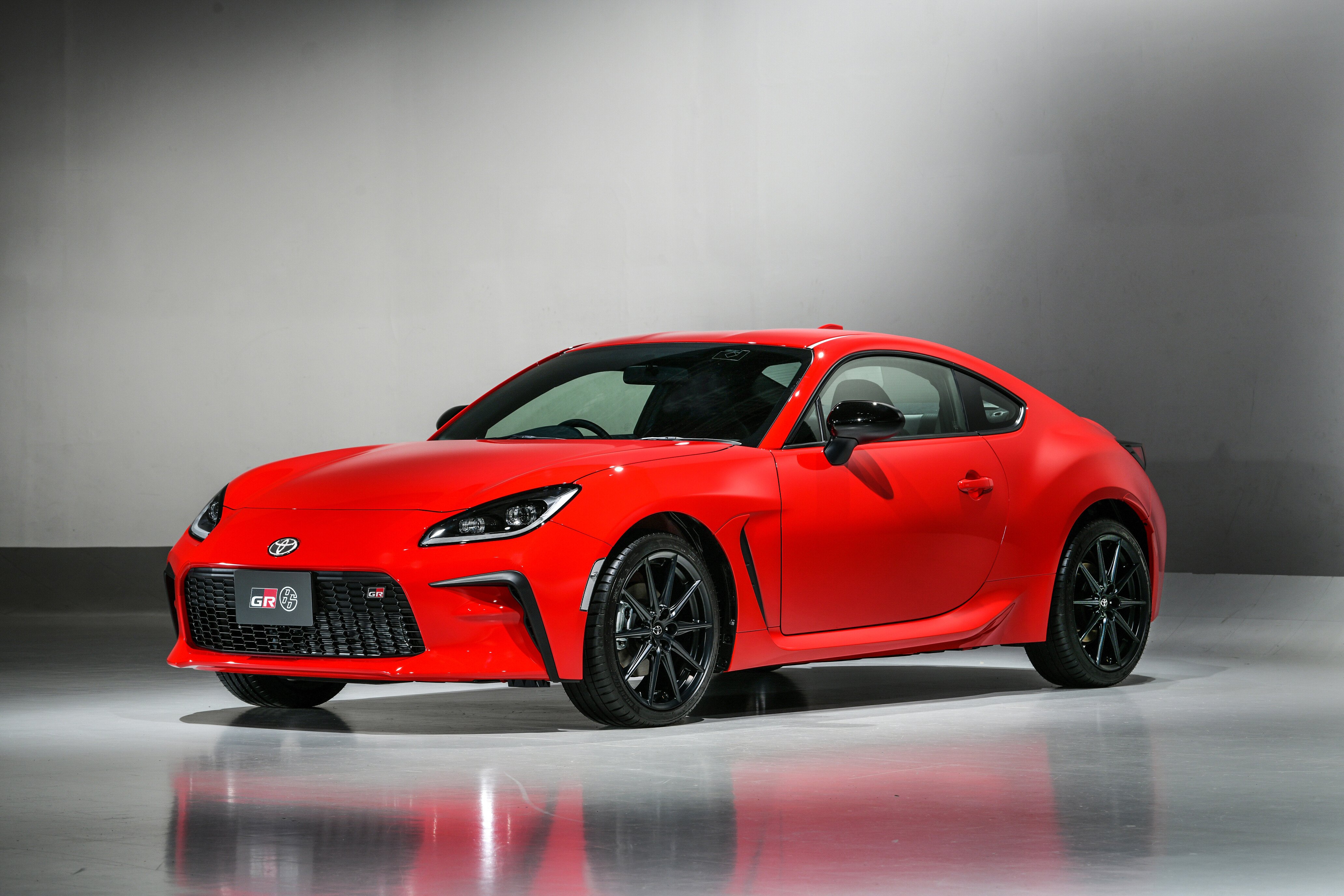
Australian deliveries for the car aren’t due until late next year (while its Subaru BRZ sibling is due to be launched locally imminently), but we attended the 2022 Toyota GR86’s official North American Launch at Monticello Motor Club, a wonderful track complex that’s just a hop and a skip outside of New York City, to give it a thorough going over. Well played on Toyota’s part, they had a few old 86 models on hand to help underscore the improvements.
Toyota’s checklist of re-styling, re-engineering and refinement of the 86 begins on the outside with some pretty welcome changes. Dimensionally, the GR’s wheelbase has increased by 5mm, its rear track width has expanded by 10mm, and there’s a tiny bit more real estate underneath in the form of 5mm more ground clearance, though its height decreases by 10mm.
The net effect is that it looks more taut and compact than the old model. Supporting this further, its exclusively LED lighting package aids its design’s overall sharpness.
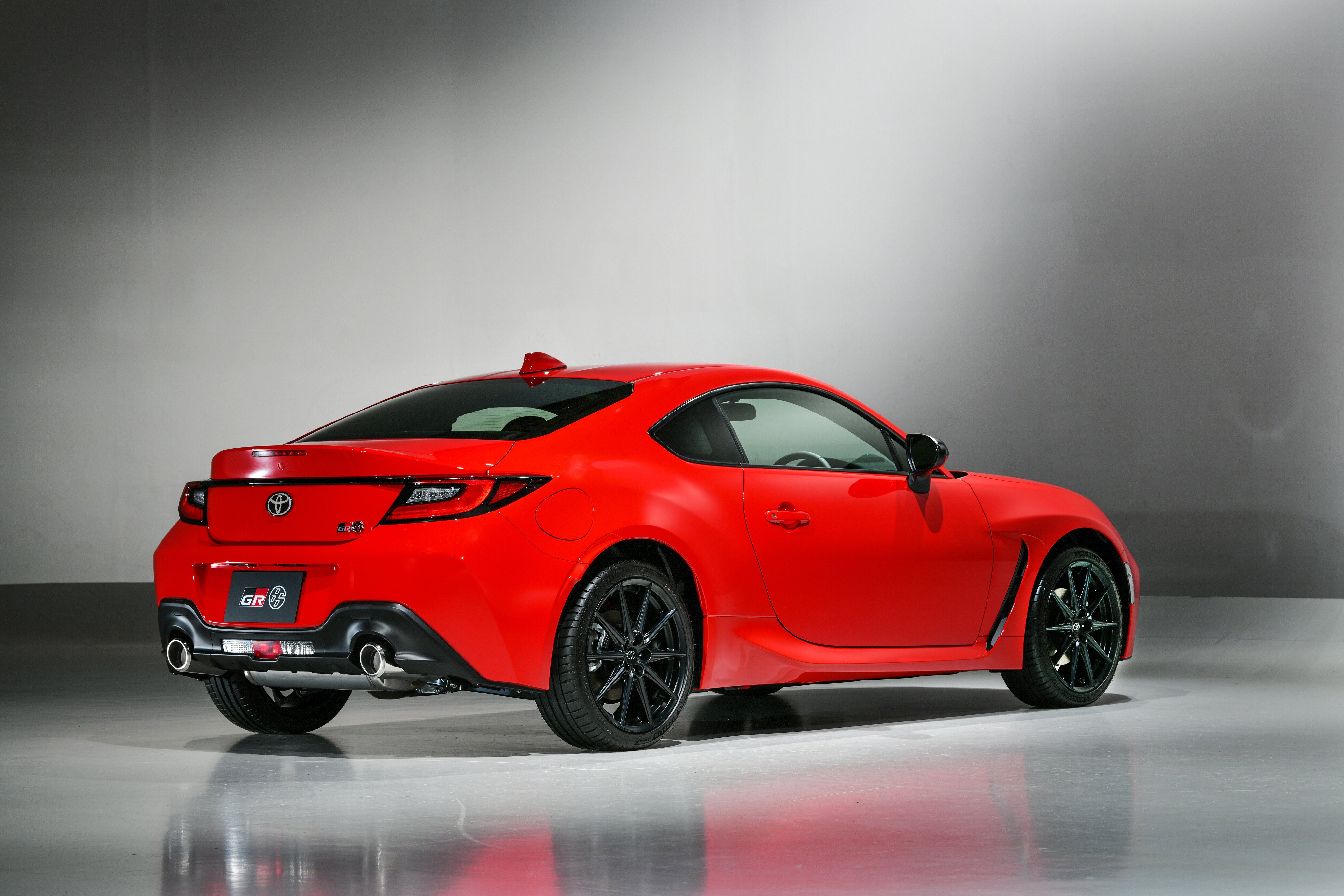
Although the GR86 now looks smaller, there’s no real compromise in liveability.
There are some clever new aerodynamics going on in three key spots, which double as elegant styling touches. Both the Base and Premium trim’s share sporty front bumper feature channels that direct air around the front wheels to improve stability at speed, as do small fins mounted on the rear wheel arches. Finally, the Premium trim has a substantial duckbill spoiler, which not only looks great, but increases downforce as well.
Although the GR86 now looks smaller, there’s no real compromise in liveability. Its larger doors and slightly larger dimensions over the old model give it an airy interior that’s roomier, and easier to live with day in and day out.
Shoulder room has increased in the new model as well, and there’s even less of a blindspot over the left shoulder. On the other hand, rear seat room is still comically small. Like the old model, dropping the bench for expanded cargo room makes up for this.
The GR’s interior feels workmanlike and inherently right, with a good, low-slung driving position, big frontal view, supportive seats and excellent pedal placement. Like the old 86, it’s very driver-focused. You don’t feel like you’re reclined back over the rear wheels, either. It’s easy to get a feel for where the front bumper begins and dual, chrome exhaust tips end. Plus, tall folks rejoice: our 190cm-tall tester affirms that there’s plenty of headroom.
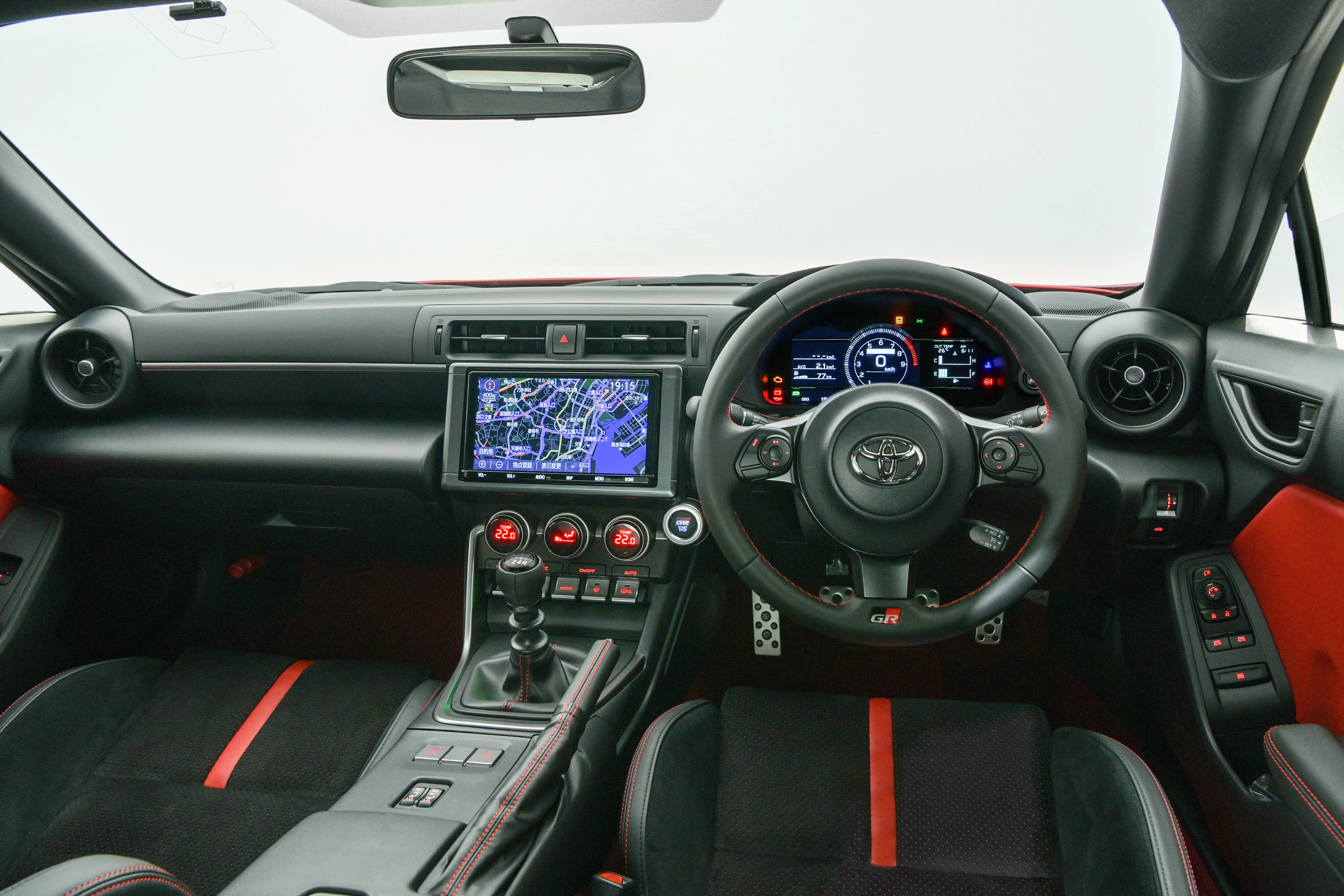
Toyota has integrated some clever bits to the latest car’s cabin in order to keep it relevant and fresh. Switchgear and other various controls’ layout is similar to the old 86, but materials quality has certainly taken an uptick. Its fully digital dash and centre infotainment screen are generously sized and offer great clarity.
As one would hope for a sports car in the 2022 model year, Bluetooth, Apple CarPlay, and Android Auto are all standard. In fact, the Premium only trumps the Base trim by offering two more speakers in its sound system, plus some minor bits of advanced driver assistance tech: six-speed manual models get blind-spot monitoring and rear cross-traffic alert. When specified with the six-speed automatic however, pre-collision braking, adaptive cruise control, lane-departure warning, sway warning, lead vehicle start alert, and high-beam assist are thrown in as well.
Thankfully, a focus on track work is still very much a high priority for the Aichi brand. Traction control is easily defeatable, just like the old model. There are now three drive modes that not only make some minor ECU changes, but also bring up different screens on its digital dash: Normal, Sport, and Track.
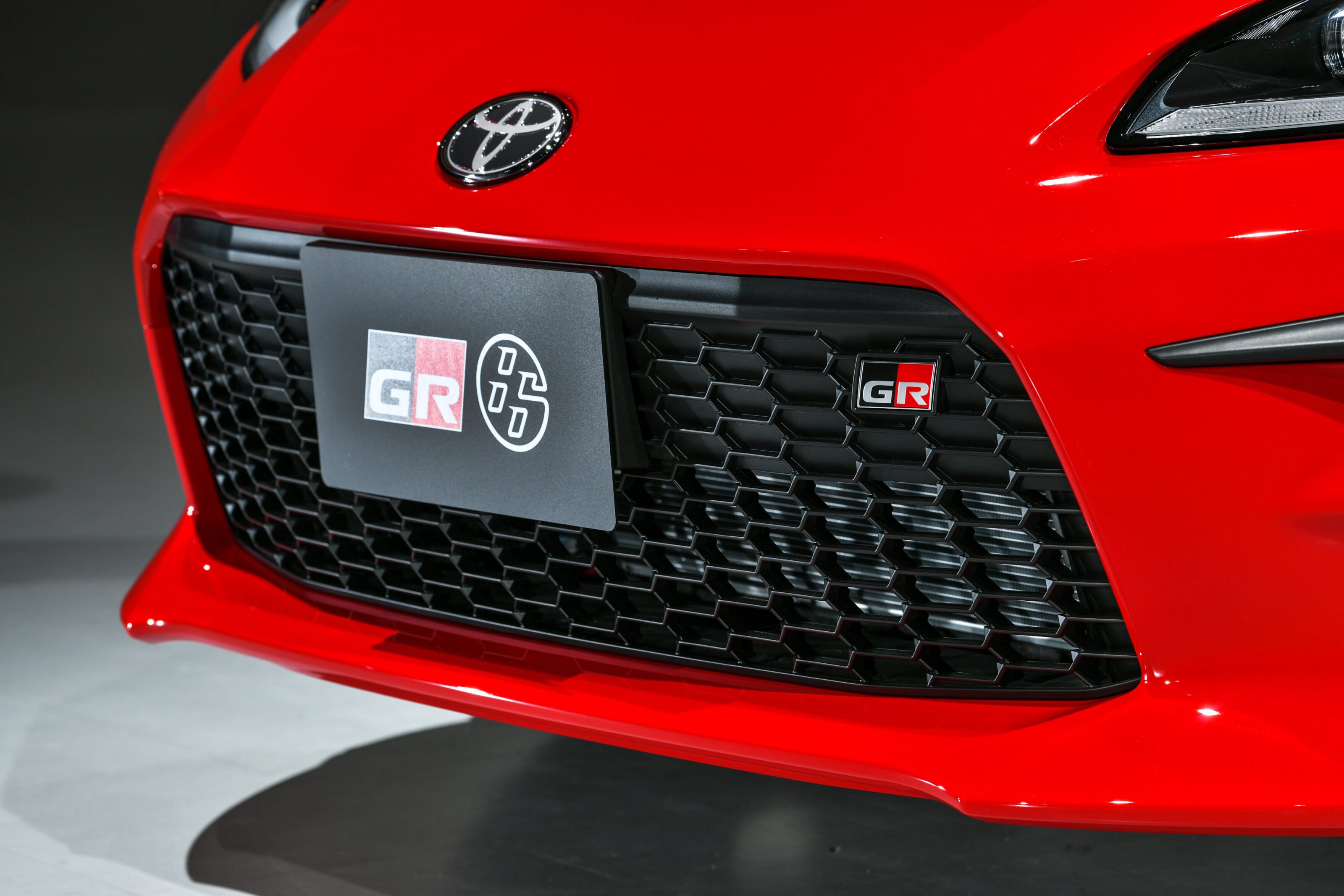
Normal features plain ol’ daily-driver-pertinent info, whereas Sport prominently features a G meter, while Track displays a lap timer, water temperature gauge and oil temperature gauge. All of them indicate speed, rpm, fuel level and water temperature. Track mode has a much larger and dynamic-looking tachometer, too, and it also plays with traction and stability control to let you have a bit more fun, but not too much fun.
All of this comes in handy for what the GR86 was truly, thoroughly refined for: giggle-inducing, lateral-and-longitudinal-G-filled joy.
Let’s all have a collective sigh of relief, especially those among us who’ve expressed the most contempt on social media over the previous 86’s lacklustre amount of power. Toyota’s cured this with a nice bump done the naturally aspirated way. There is no turbo to be seen.
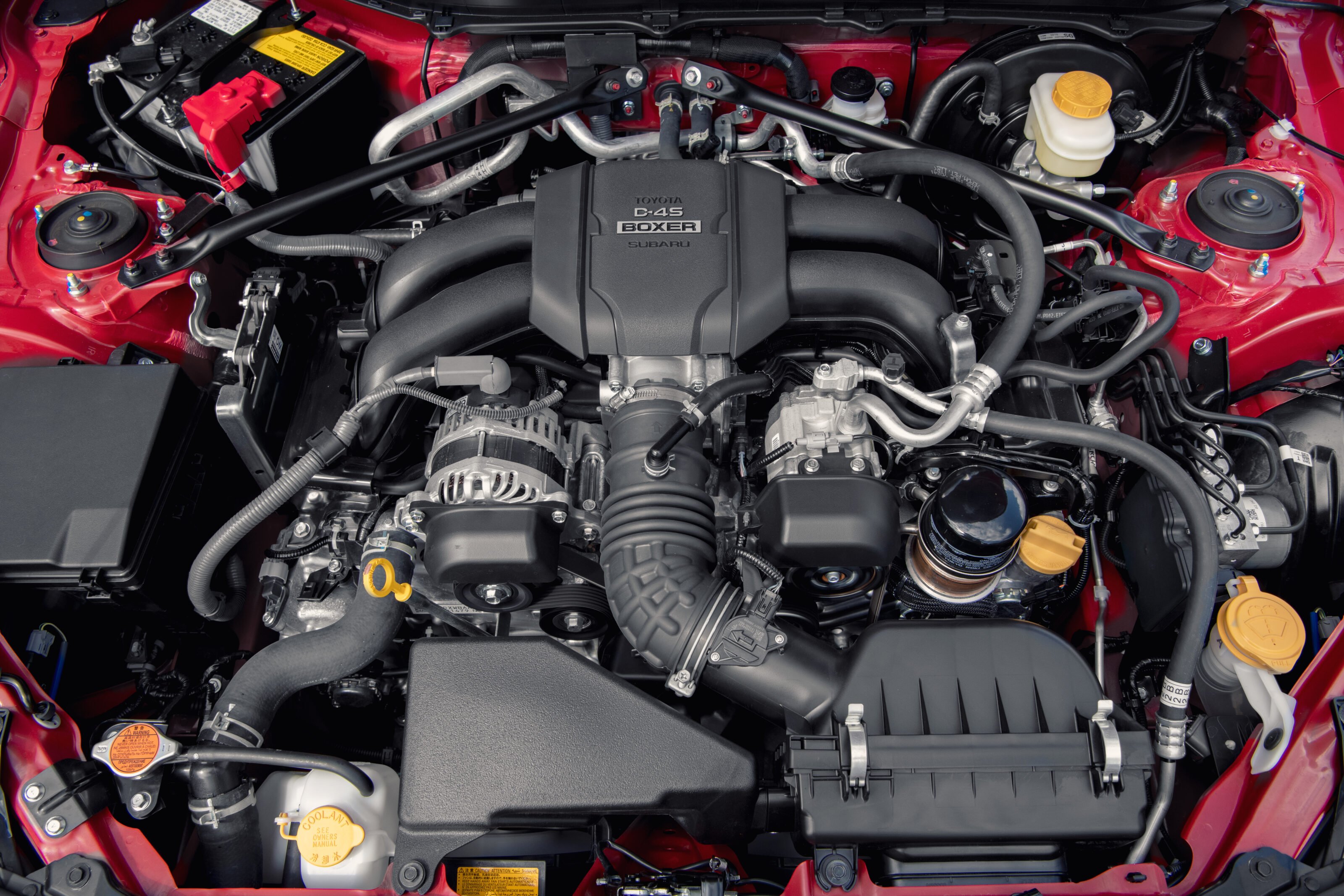
The new GR86’s flat-four engine has increased in size to 2.4-litres, 0.4 more than the previous generation’s. With the help of some revised engine tuning, more flow on both the intake and exhaust side, as well as 8mm more cylinder bore, power is now rated at 173kW with a torque figure of 250Nm to boot, a hearty 21kW and 38Nm bump respectively. We’re glad they went the non-forced induction route, too; less heat, less complexity, it keeps costs down, and so on.
With just 1285kg (Premium, manual) to push forward, which is a gain in the area of 16kg over the old 86, the GR will leap to 100km in around 6.3 seconds. That’s more than a second faster than the old model, and it’s also a generally much more enjoyable experience. Torque peaks at just 3700rpm, a whole 2700rpm sooner than last year’s model, and you certainly feel it. The mid-range is encouragingly hearty, and it smoothly revs to 7000rpm before it taps out at the limiter.
The old 86’s lump felt coarse, and sounded like a well-used industrial-grade coffee grinder as it climbed revs. The new 2.4 feels buttery smooth all the way to redline, and produces a nice baritone growl along the way. That classic, slightly off-tempo boxer warble is pretty much gone, too, thanks in part to Toyota piping in some fake sound via a small speaker in the dash. Remarkably, it’s one of the more pleasant fake engine notes we’ve experienced in recent years.
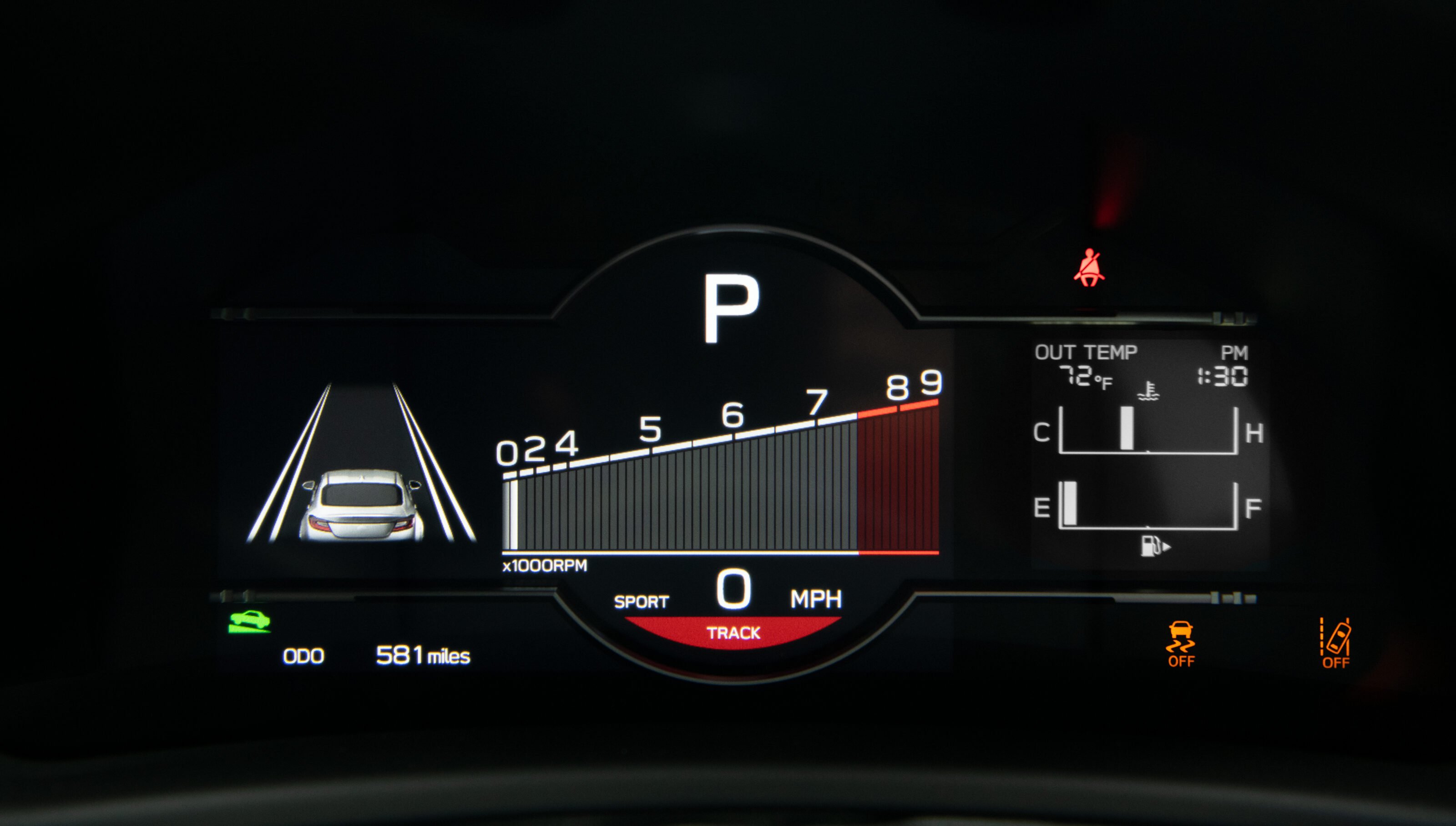
Transmitting power to the Torsen limited-slip differential out back is still a six-speed manual (a six-speed auto is optional, pricing hasn’t yet been announced).
The manual ’box is largely a carryover unit with a few tweaks, but it shifts much more smoothly, feels more solid, and has a shorter throw. The old gearbox by comparison felt very agricultural.
In addition to its slick gearbox and generous bump in power, the GR86’s fun factor is further proven by some substantial upgrades and revisions to the scaffolding beneath its wheel arches, and clever increases in rigidity throughout its chassis.
The front suspension is a MacPherson strut-type design like the old model, except now with more rebound added to its front dampers to maintain a better contact patch, which bodes well for typical Aussie B-roads. Additionally, Toyota added aluminium engine mounts and a wholly re-tuned spring and damper combo at all four corners. In the rear, it’s still a fully independent multi-link design, though now features a more rigid subframe and lower damper connecting points.
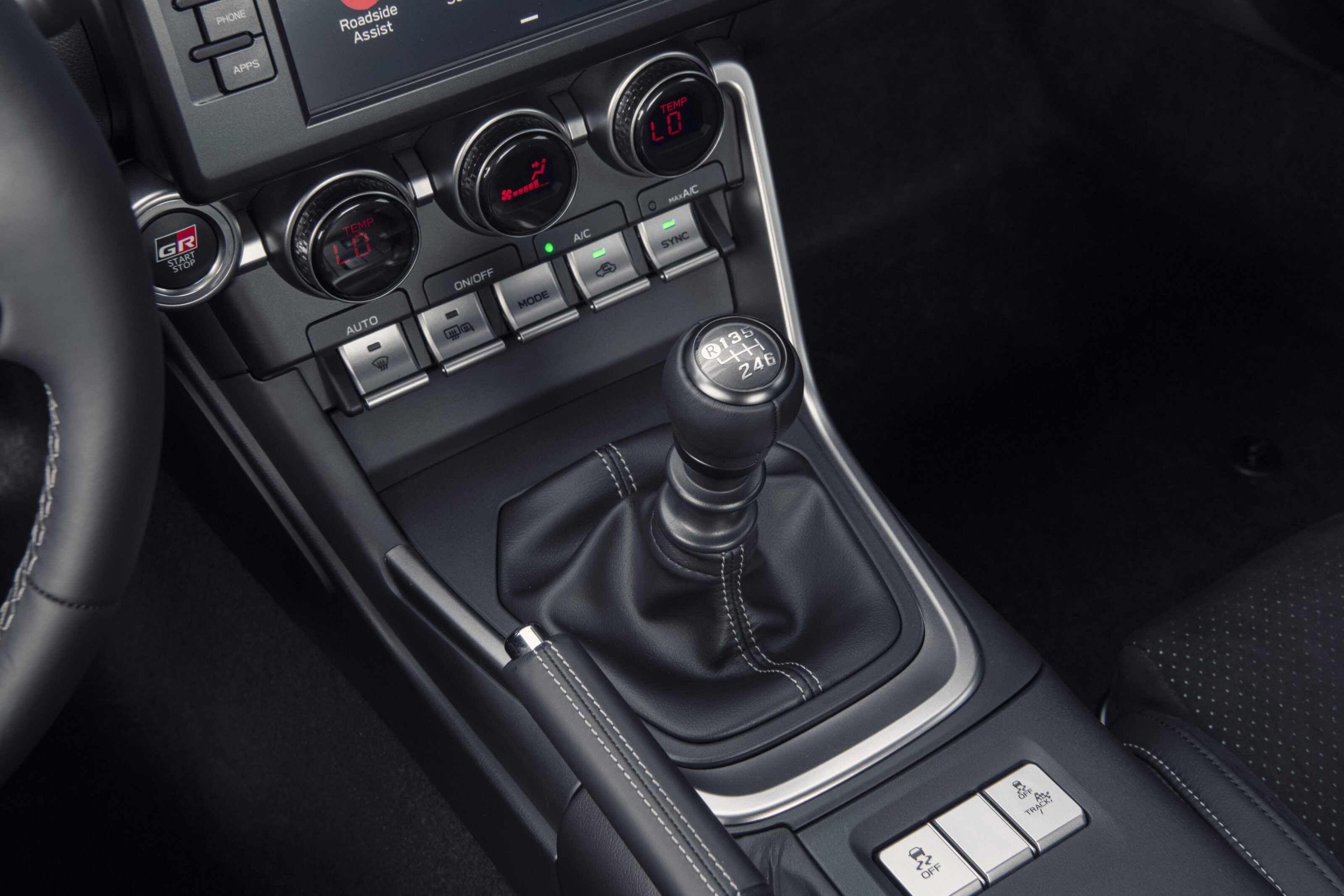
Going one further, the GR86’s entire body has been stiffened, not that the old 86 was lacking in this department. Through the use of some clever bracing, additional reinforcement, and use of high-strength steel in key areas, chassis rigidity has been greatly increased.
Finally, Toyota states that the new GR86 has a centre of gravity that’s 1.6mm lower than the previous 86. This might sound like an insignificant figure, but for a car that’s already renowned for its very low centre of gravity, we’re impressed. This figure was achieved by manufacturing the roof, front guards, and hood out of aluminium, and shaving weight out of the seats, silencer and driveshaft.
Monticello Motor Club, with its rollercoaster-like flow, elevation changes and tight transitions, was the perfect venue to focus on all of the new 86’s engine, transmission, chassis and suspension improvements.
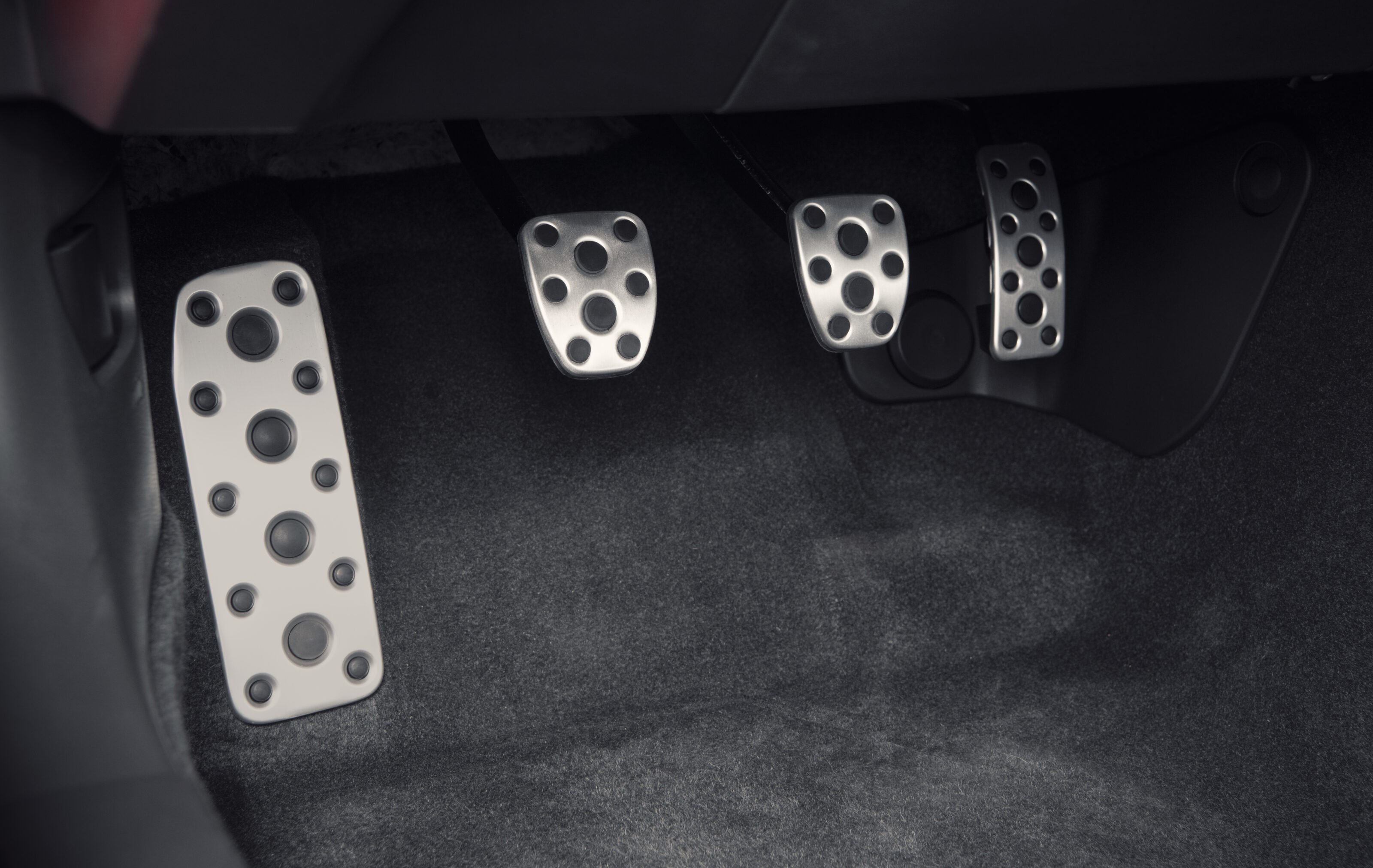
Body roll through this downright-fun track was minimal, which is rather surprising considering it’s equipped with mere conventional, passive dampers; no trick adaptive kit here.
The substantial improvements to overall rigidity shone through as well, ensuring that it’s clear exactly which tiny segment of the tyre’s contact patch that weight was shifting towards under cornering, acceleration and braking. Then, powering out of corner-exit and onto the next turn was a far more enjoyable experience than in the old 86 thanks to that welcome power hike. Weaving through all forms of tight right- and left-handers, late apexes, flowing sweepers, crests, and liberally gobbling up kerbs, was nothing short of riotous.
Efficient throttle and brake balance is a breeze behind the wheel of the GR86. Thanks to 295mm discs up front and 290mm rotors in the rear, plus a more aggressive pad compound, brake fade isn’t ever a concern in Monticello’s hard braking zones. You’re spurred on to dive deeper into corners thanks to a very uniform and confident brake pedal, which also makes for easy trail braking for lap after lap of precision, apex-hitting joy.
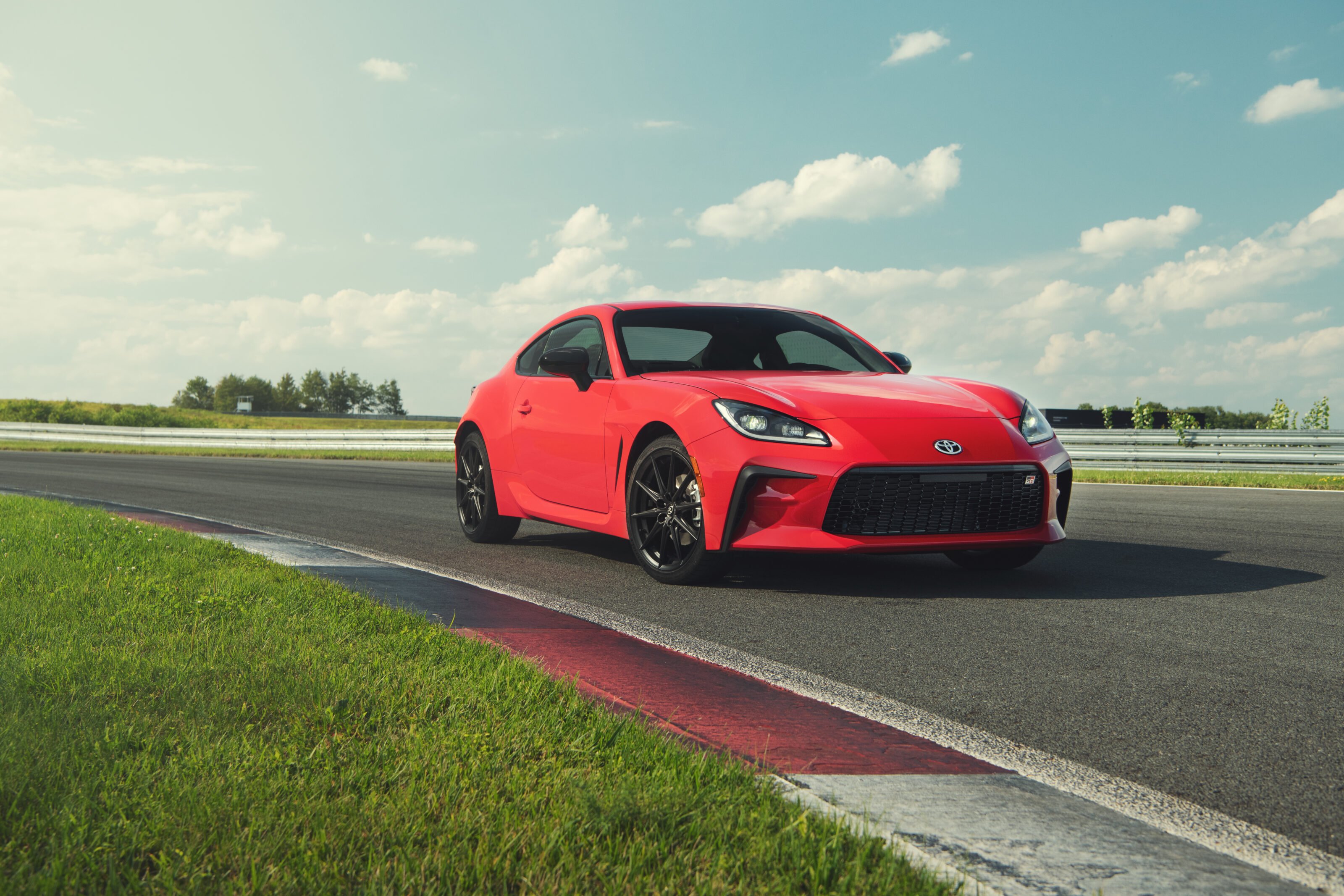
The GR86’s steering weight and feel is excellent, and has one of the best ratios we’ve tested in a long time. Toyota claims they’ve improved this over the previous generation by increasing the steering gear box mount’s rigidity, and making the overall system smaller, lighter and more responsive.
We never had any major qualms with the old 86 on track, but indeed the new model’s chassis feels tighter, its handling is sharper, and its steering, brake, throttle, and clutch inputs just feel far better. Toyota/Subaru probably could have gotten away with fewer revisions, we commend them for going this far down the checklist.
We also preferred how the Premium trim felt through Monticello with its stickier 215/40/18 Michelin Pilot Sport 4 tyres (which are mounted up to satin black GR Yaris wheels, by the way). Yes, we’re aware that it seems like most motoring journalists are over the moon regarding both the old- and new base-level 86 sporting easy-to-drift Michelin Primacy HPs. But those tyres are garbage.
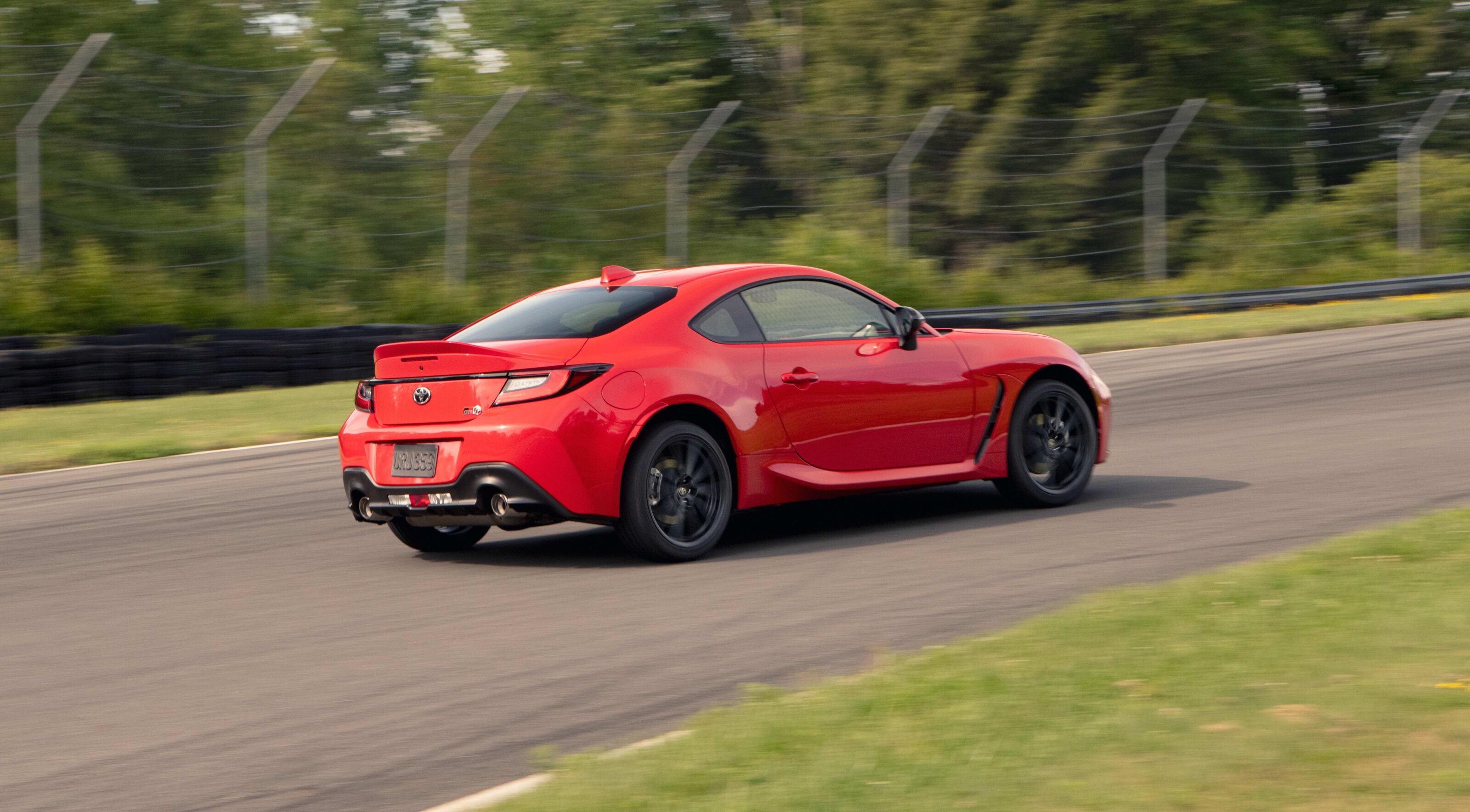
They lack feel, are devoid of confidence through high-speed sections, and feel way too squidgy under braking and low-speed cornering. Sure, all of this could be solved with a more assertive right foot and equal parts opposite lock, but for anyone looking for precision and better lap times, the Pilot Sport 4s are definitely the ticket. Plus, they’re only slightly harder to will towards some hilarious, tail-out rascality.
On the road, Toyota’s chassis and handling revisions prove that you can have your cake and eat it, too. Where the old 86 feels crashy over sharp bumps and wallowy over undulations, the new GR86 feels solid and well-damped. We were shocked at how well it rode, which is proof that a well-engineered chassis and suspension setup can really shine on purpose-built track tarmac, as well as over coarse, day-to-day, A-to-B fare.
In fact, in addition to having a bit more power, a bit more room, and being a bit easier for ingress and egress, the new GR86 is definitely more daily-able than the old model.
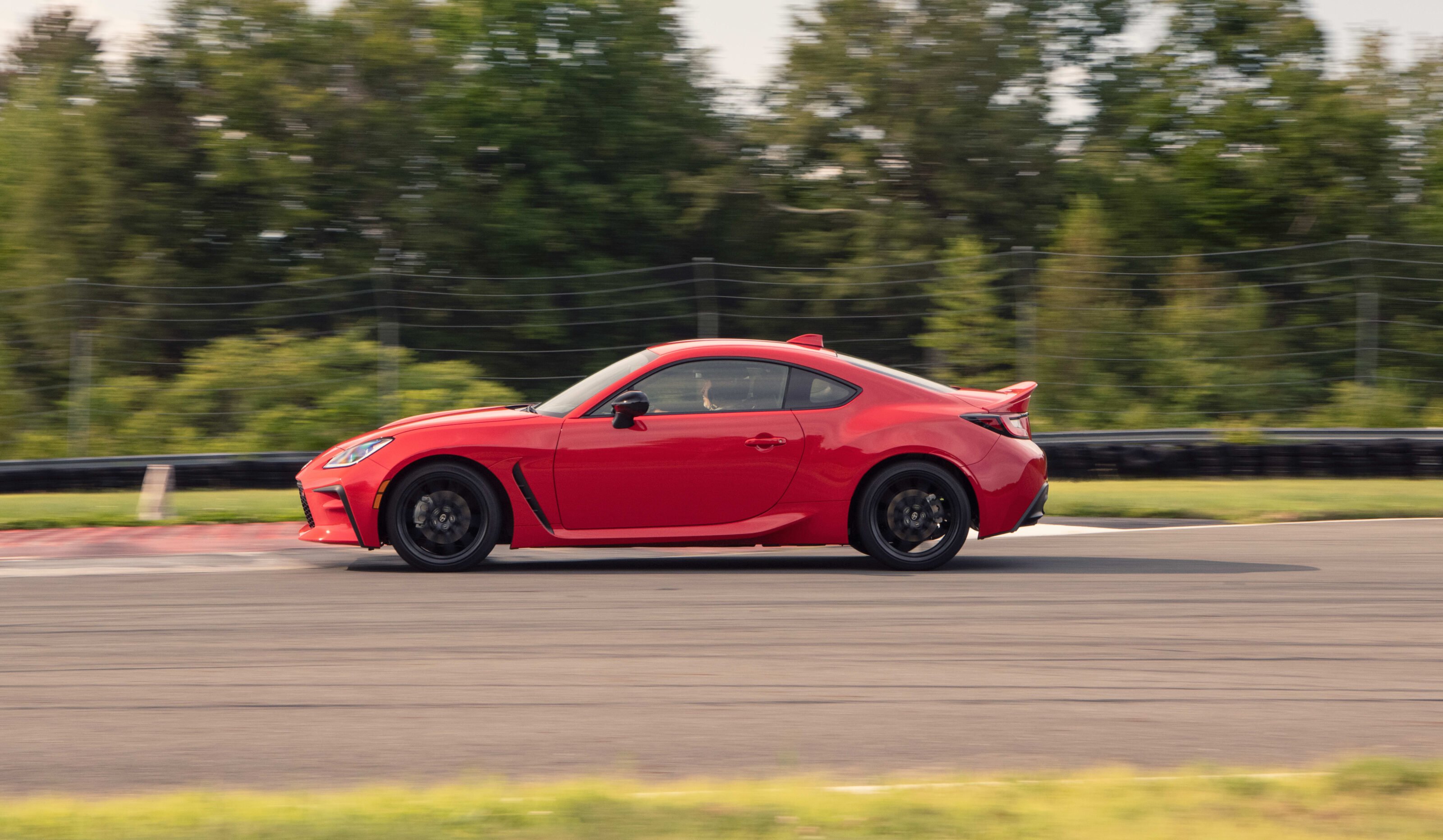
Which really does Toyota’s checklist of upgrades and updates justice. Green checkmarks abound: it managed to make a faster and more competent, yet easier-to-live-with and more comfortable, affordable sports car.
The 86 nameplate is still a platform that’s geared towards those in search of practical, honest, rear-wheel drive fun, which is quite refreshing in our era of small crossovers being all the rage, tightening emission restrictions, and internal combustion soon to be found in the pages of history books.
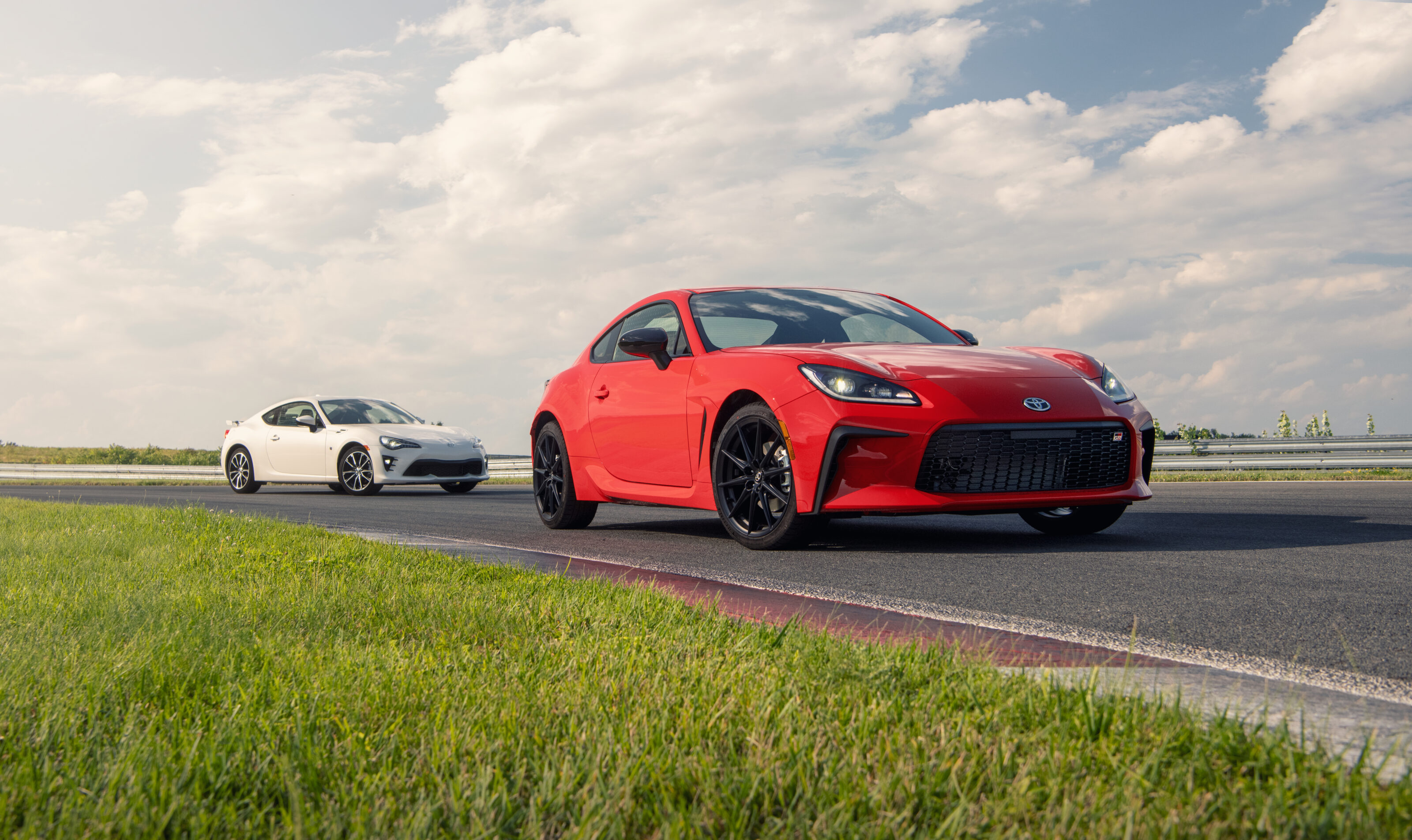
Four ways the driveline has improved
- No hidden dips
- Weight for it
- Go manual
- Final drive
Toyota GR86 Premium manual specs
Things we like
- More grunt
- Better soundtrack
- More refined interior
- Same uncompromising philosophy
Not so much
- Auto still the poor relation
- Some will still complain it’s not quick enough

